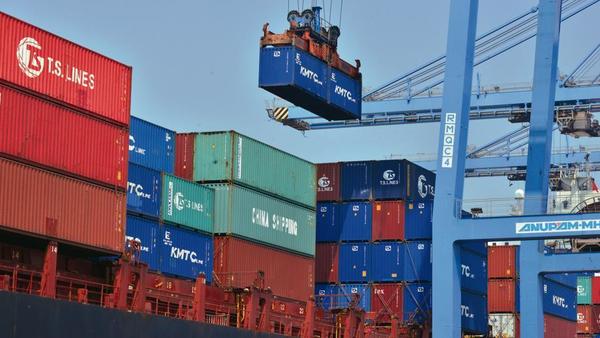International Trade Expert, Titus Olowokere, has advised Nigerian entrepreneurs to strategically position themselves to access the United States’ 20 trillion dollar market in spite of potential tariffs.
Olowokere said this in a statement on Wednesday.
He said that Nigerian businesses could adapt to tariffs and access the American market through strategic partnerships and trade agreements.
According to him, this is by focusing on high-potential sectors, niche markets, and e-commerce.
“Nigerian enterprises possess the agility and resourcefulness to adapt to tariffs, effectively mitigate their impact and ultimately seize the American prize.
“This is through the cultivation of strategic partnerships and the astute utilisation of existing trade agreements,” Olowokere stated.
He acknowledged the beauty of the U.S. market, which imported $5.7 billion worth of goods from Nigeria in 2024, but noted the potential challenge of Trump-era tariffs, including a 14 per cent levy on Nigerian exports.
He, however, asserted that these barriers are surmountable with ingenuity.
“For Nigeria’s indefatigable business luminaries, such barriers are not insurmountable walls but mere hurdles to be vaulted with ingenuity and strategic acumen,” he said.
Olowokere highlighted agriculture, particularly cocoa exports which amounted to $32.72 million in 2023, leveraging African Growth and Opportunity Act (AGOA) which provides duty-free access for over 6,800 products.
“Agriculture offers a fertile starting point. Nigerian exporters can strategically target niche U.S. segments like the $1.5 billion organic chocolate sector, where premium pricing offsets added costs,” he explained.
He also pointed to opportunities in the fashion industry, tapping into the 400 billion dollars apparel market where African-inspired fashion on a global online market space saw a 25 per cent rise in sales in 2024, through e-commerce and partnerships.
The technology sector, with Nigerian fintech exports growing by 40 per cent to 150 million dollars in 2024, offers a tariff-free advantage.
He recommended three strategies such as trade partnerships with U.S. entities, leveraging AGOA and African Continental Free Trade Area, AfCFTA, and utilising e-commerce.
“To mitigate tariff impacts and unlock the U.S.’ $20 trillion market, Nigerian businesses can deploy three strategies: trade partnerships, leveraging existing trade agreements which saved Nigerian exporters $50 million in duties in 2023, and embracing e-commerce, which saw Nigeria’s online exports via Amazon hit $10 million last year,” he said.
Olowokere emphasised the role of policymakers in streamlining export procedures and fostering investor confidence.
“Policymakers, too, bear a pivotal role in facilitating this transformation… promoting investor confidence domestically will fortify Nigeria’s standing as a formidable player in global trade,” he said.
He urged entrepreneurs to pursue transatlantic alliances and tech-driven sales to overcome tariff challenges.
“Entrepreneurs should pursue transatlantic alliances and tech-driven sales, turning tariffs into a spur for innovation,” Olowokere noted.
NAN






